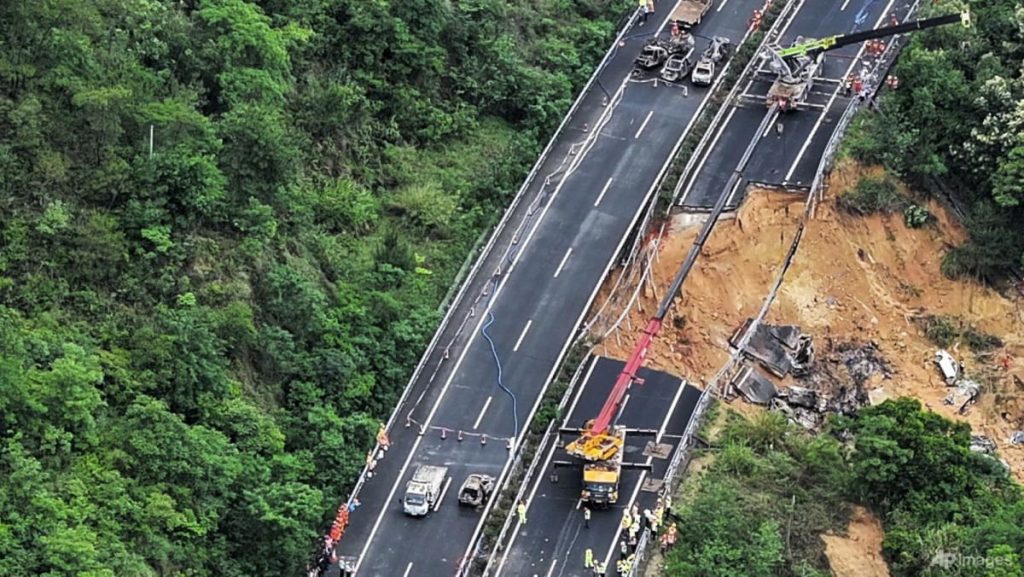At least 24 people have died in southern China’s Guangdong province after heavy rains caused part of a highway to collapse. The region has been experiencing severe rainstorms, flooding, and landslides due to abnormal weather patterns, which have been linked to climate change. The collapse occurred between Meizhou city and Dabu county in the early hours of Wednesday, trapping 20 vehicles and 54 people. By mid-afternoon, 24 people had been confirmed dead and 30 were receiving emergency care in hospital.
The collapse caused a deep muddy pit where the highway once stood, with wrecked vehicles scattered throughout. Emergency vehicles and cranes gathered at the scene as recovery efforts continued. Videos circulating on social media showed flames and smoke emanating from the pit, with eyewitnesses reporting that parts of the road had given way due to the heavy rain. Authorities described the incident as a natural geological disaster triggered by persistent downpours.
Approximately 500 people were dispatched to assist with the rescue operation, including personnel from various emergency response departments. Part of the S12 highway was closed in both directions following the collapse, with drivers instructed to take detours. This incident is just one in a series of disasters in Guangdong related to extreme weather events, such as floods and a tornado that caused casualties and forced evacuations. The region has not seen such severe flooding this early in the year since record-keeping began in 1954, indicating the impact of intensifying climate change on weather patterns.
Yin Zhijie, the chief hydrology forecaster at the Ministry of Water Resources, has attributed the heavy rain in Guangdong to intensifying climate change. He explained that such rainfall amounts are typically not seen until the summer months but have now become more frequent and severe due to climate change. The provincial authorities have been on high alert due to the increased risk of extreme weather events, prompting swift response and rescue efforts in the wake of these disasters. As recovery work continues in the aftermath of the highway collapse, the focus remains on providing emergency care to the injured and ensuring the safety of the affected areas.
The collapse of the highway in Guangdong underscores the vulnerability of infrastructure to extreme weather events exacerbated by climate change. This incident serves as a tragic reminder of the importance of preparedness, response, and adaptation measures in the face of climate-driven disasters. The region’s dense population and industrial powerhouse status make it particularly susceptible to the impacts of climate change, highlighting the need for proactive measures to mitigate risks and protect lives and livelihoods. As extreme weather events become more frequent and severe, addressing the root causes of climate change and building resilience in vulnerable communities will be crucial in averting future tragedies like the one that occurred in Guangdong.













